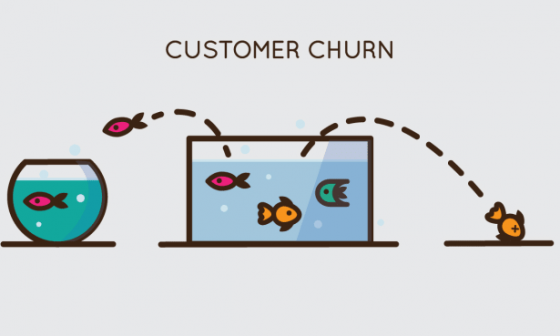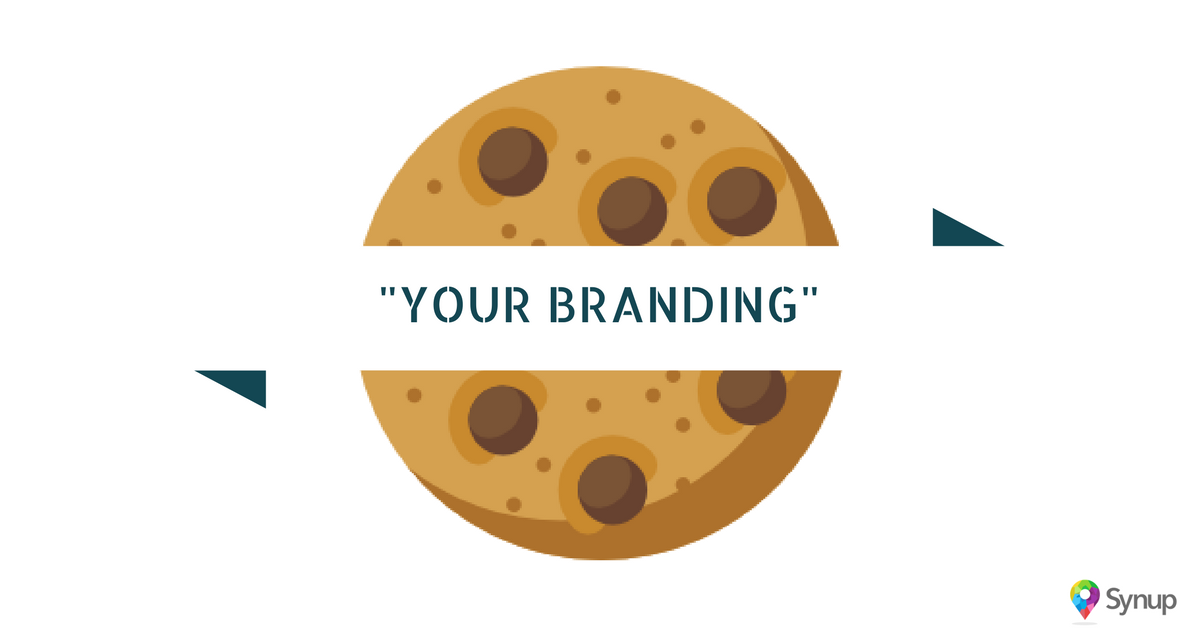Online reviews hold more weight now than ever before, especially for agencies. Your reputation is everything, and a strong online presence can make the difference between landing a new client or losing one to a competitor.
However, in the rush to maintain a perfect online image, many agency owners fall into the trap of using shortcuts to manage their reviews. What might seem like an easy fix can quickly spiral into a reputation disaster. Here’s a breakdown of risky online review practices you should avoid to protect your agency’s reputation.
1. Review Gating
As an agency owner, it’s natural to want to avoid negative reviews. However, using tactics like review gating, where you screen customer feedback before it goes public, is a dangerous game. It might seem like a smart move to only encourage your happiest clients to leave reviews or to filter out negative comments before they’re visible. But this is a short-term solution with long-term consequences.
Why it’s risky?
First off, review gating violates the terms of service of most major review platforms like Google, Yelp, and others. These platforms specifically prohibit businesses from filtering reviews or pressuring customers to leave only positive feedback. Even if you think your reviews are being handled discreetly, consumers are smarter than you think. They can spot manipulated feedback a mile away, and when they do, your credibility takes a hit.
But the risks don’t stop there. Review platforms like Google and Yelp have algorithms that detect suspicious review patterns. If they catch wind of review gating, they can penalize your agency, or worse, remove your business listing altogether. Not only does that hurt your online visibility, but it can completely destroy trust with potential clients.
Takeaway:
The best way to manage reviews is with honesty. Focus on providing exceptional service, addressing client concerns head-on, and responding to both positive and negative feedback professionally. This builds long-term trust and demonstrates that you value all feedback, not just the good.
2. The Conflict of Interest Trap
It’s tempting to ask your employees to leave positive reviews, especially when you’re trying to boost your ratings. You might think it’s harmless or even helpful, but asking your team to write glowing reviews for your agency is a dangerous path to walk down.
Why it’s risky?
Most review platforms view this as a clear violation of their guidelines. Google and others specifically ban businesses from having employees post fake reviews, even if they’re truthful about their experience. But the damage goes deeper than just platform penalties. Consumers are becoming more and more savvy when it comes to spotting inauthentic reviews. They can tell when a review seems too polished or doesn’t reflect the real experience.
In addition, there’s a growing legal risk. Some jurisdictions have laws against fake reviews, and businesses found to be using them can face hefty fines or other legal consequences. You don’t want your agency’s reputation tainted by something that could have been easily avoided.
Takeaway:
Instead of relying on internal reviews, focus on cultivating genuine feedback from your clients. Encourage them to share their experiences, and make it easy for them to do so. Authentic reviews from real customers will always carry more weight and provide far more value in the long run.
3. Buying Reviews
Buying reviews might seem like an easy shortcut to a high rating, but it’s one of the most damaging things you can do to your agency’s online reputation. There are many services out there offering to “boost” your reviews for a fee, but this is a tactic fraught with danger.
Why it’s risky?
Most review platforms have sophisticated methods for detecting fake or purchased reviews. These platforms use AI and machine learning to analyze patterns and identify suspicious activity. Even if you manage to sneak a few paid reviews past the system, they’ll likely come across as generic, overly positive, and lack authenticity. Consumers are quick to spot a fake review, and once they do, trust in your agency will take a massive hit.
The consequences of getting caught buying reviews can be severe. Google, Yelp, and other platforms can completely remove your business profile, and in some cases, even take legal action against you. Worse yet, your agency’s reputation could be permanently damaged. Clients will not want to work with a business that’s been caught manipulating its online image.
Takeaway:
Instead of buying reviews, focus on earning them. Provide excellent service and ask satisfied clients to share their feedback. This approach will build a more sustainable and genuine online reputation, which in turn leads to more loyal clients and organic growth.
4. Review Swapping
Some agency owners may get caught up in the idea of review swapping, exchanging positive reviews with other businesses in exchange for a good review in return. This seems like a harmless way to boost your agency’s reputation, but it can quickly backfire.
Why it’s risky?
Review platforms are on the lookout for these types of coordinated efforts. Google and Yelp can easily spot when businesses are trading reviews, especially if the feedback comes from similar accounts or follows the same pattern. When these practices are detected, platforms will remove the reviews, and your agency can be penalized or even banned from the site entirely.
The real kicker? When clients or prospects realize that your reviews are artificially inflated, it shatters the trust you’ve worked so hard to build. In the world of online reputation, trust is everything, and once it’s gone, it’s incredibly hard to rebuild.
Takeaway:
Instead of relying on review swapping, focus on building authentic relationships with your clients. The best reviews come from real clients who genuinely believe in your agency’s work and value. This kind of credibility is much harder to fake and has far more staying power.
5. Incentivized Reviews
Offering incentives like discounts, free products, or gift cards in exchange for positive reviews is tempting, but it’s a practice fraught with risks. While it might seem like a quick way to gather glowing feedback, it’s actually one of the most dangerous things you can do.
Why it’s risky?
Most review platforms have strict rules about incentivizing reviews. Google and Yelp, for example, require businesses to disclose any incentives given in exchange for reviews. If this isn’t clearly communicated, it could be seen as an attempt to manipulate the review content. This can not only lead to penalties but also damage your agency’s credibility in the eyes of potential clients.
Additionally, incentivized reviews often don’t come across as authentic. Consumers are becoming increasingly aware of when they’re reading reviews that were “bought” through incentives, and this can cause them to question your agency’s integrity.
Takeaway:
Rather than offering rewards for positive reviews, focus on delivering an outstanding client experience. When clients are truly happy with your work, they’ll leave positive feedback without needing an incentive. The authenticity of these reviews will speak volumes and carry far more weight than any discounted service ever could.
7. Responding Poorly to Negative Reviews
It’s tough when a client leaves a review that feels unfair, exaggerated, or just plain wrong. Especially if it comes after you bent over backward to deliver. You might want to correct the story, call them out, or defend your team. But when you let emotion take the wheel, it can backfire fast.
Why it’s risky?
People reading your reviews are not just judging the review itself. They’re judging how you handle conflict. When agency owners react emotionally, arguing with the reviewer, blaming the client, or trying to justify things publicly – it immediately shifts the spotlight onto you. You end up looking defensive instead of professional. Even if you’re technically right, coming off as combative is a bad look.
Takeaway:
Take a breath before you reply. Thank them for their feedback, acknowledge their experience, and show a willingness to improve. Even if they weren’t right, your professional response can turn a bad moment into a trust-building opportunity.
8. Spamming Clients With Review Requests
After wrapping up a project, it’s natural to want a review. But some agencies go overboard, sending follow-up emails, texts, and reminders in a short span. You’re trying to stay top of mind, but what starts as a polite ask can quickly feel pushy.
Why it’s risky?
Constant reminders can sour the client experience, especially right after a project ends. You might think you’re being persistent, but the client might see it as nagging. It creates a post-engagement experience that feels transactional instead of thoughtful. Worse, it can backfire by prompting a lukewarm review or none at all. If they felt pressured, that sentiment often bleeds into their feedback.
Review platforms also track suspicious review behavior. If multiple clients leave reviews in a short burst due to aggressive follow-ups, it can look inorganic and hurt your credibility.
Takeaway:
Make it easy, not annoying. Send one personalized request shortly after the project ends, then maybe one gentle follow-up a week or two later. If they’re happy with your work, they’ll leave a review without needing five nudges. Focus on delivering a great experience, and the reviews will come naturally.
9. Ignoring Reviews Altogether
Between client work, team management, and everything else, it’s easy to forget to check in on your reviews. You might think, “If no one’s complaining, I’m good.”
Why it’s risky?
Silence sends a message. If a client leaves a glowing review and you don’t acknowledge it, it can feel like a missed opportunity to strengthen the relationship. If a client leaves a negative one and you say nothing, that becomes the last word. Prospective clients notice when you engage and when you don’t. Ignoring reviews can make your agency seem inattentive or unresponsive.
Takeaway:
Make review responses part of your client success process. Set aside a little time each month to respond to both positive and negative reviews. Your words matter. They help build trust, show your values, and reinforce why clients should choose you.
10. Using AI-Generated or Scripted Reviews
With tools that can write just about anything in seconds, the idea of generating a few positive reviews through AI might feel like a shortcut worth taking.
Why it’s risky?
Reviews written by AI often sound too polished or robotic. They lack the real-world detail that makes feedback credible. Review platforms have started using tools to detect unnatural language and patterns. If flagged, these reviews could be removed, and your profile could be penalized. If clients or competitors catch on, the damage to your reputation is even worse.
Takeaway:
AI can help you structure a good review request, but it shouldn’t be used to fake the review itself. Trust is built on real experiences. Stick to reviews written by clients who’ve actually worked with you and seen your process firsthand.
Summing It Up…
In the world of online reviews, trust is everything. People rely on reviews to decide who to work with, and they can usually tell the difference between something real and something forced. That’s why authenticity matters more than ever.
It might be tempting to cut corners. Maybe you’ve had a rough month, or a tough client left a review that stings, and now you’re thinking about ways to balance it out. Maybe you’ve even considered asking friends to leave a few nice words, or nudging a client one too many times for that five-star feedback. But the truth is, those shortcuts rarely work the way you hope. Most of the time, they do more harm than good.
Platforms like Google and Yelp are constantly improving their ability to detect inauthentic reviews. More importantly, clients are smart. They know when something feels off, and when they spot reviews that sound too polished or disconnected from reality, it creates doubt. Even one fake-sounding review can make someone question all the others.
The safer and smarter path is to focus on doing great work and letting the reviews follow naturally. Keep your process simple: deliver real value, stay responsive, and ask for feedback at the right time. If a client’s thrilled with your work, a single thoughtful review from them is worth more than ten vague, overly flattering ones from people who were never truly involved.
When you build your reputation on trust and results, you create something that lasts.
Risky Online Review Practices To Avoid – FAQs
- What are the negatives of reviews?
Reviews, especially negative ones, can harm your online reputation, affect trust with potential clients, and even impact your search rankings. They can also be biased, unrepresentative, or based on isolated incidents, which doesn’t reflect the overall quality of your service. - How to avoid bad reviews on Google?
To avoid bad reviews, focus on providing excellent service and responding to issues before they escalate. Make sure to follow up with clients, ask for feedback, and address any concerns promptly to prevent frustration that could lead to negative reviews. - How to protect yourself from bad reviews?
While you can’t completely avoid bad reviews, you can protect yourself by maintaining transparency, being responsive to negative feedback, and encouraging satisfied clients to leave positive reviews. Showing that you care and can handle criticism builds trust and mitigates the impact of bad reviews.
Why do people give bad reviews?
People often leave bad reviews when they feel frustrated, disappointed, or unheard. They may also leave negative feedback if their expectations weren’t met, if there was poor communication, or if they had a single bad experience that overshadowed the good.


